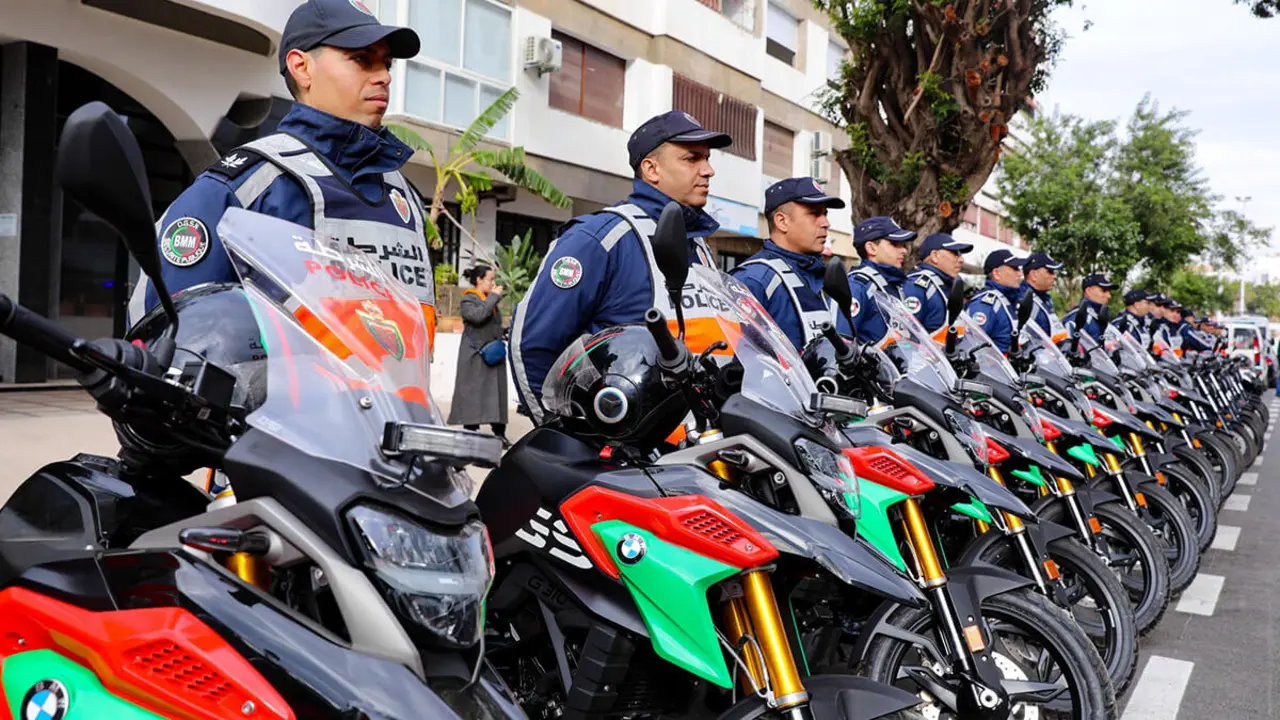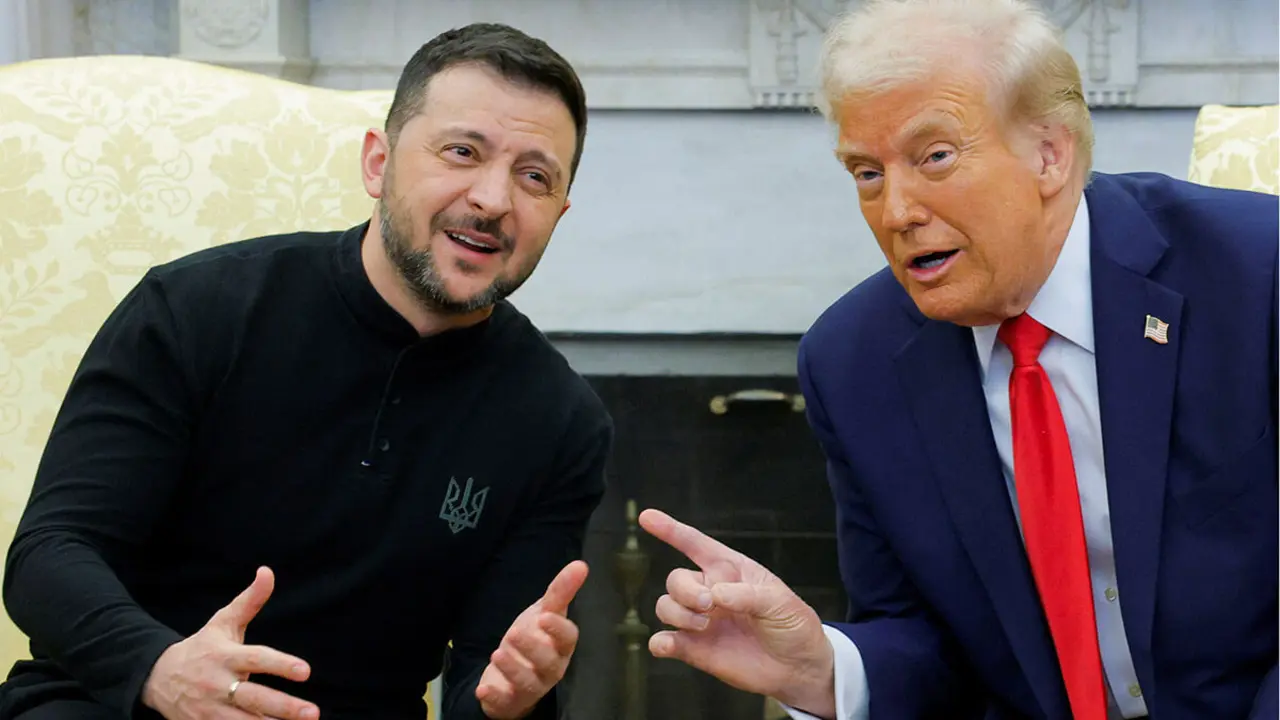NATO strengthens cooperation with Mauritania to limit rapprochement with Russia

Located in the far northwest corner of Africa, the Islamic republic of Mauritania has for more than a year been increasingly attracting the attention of NATO, several European countries - including Spain - and also the Kremlin.
However, whatever Moscow's interests, the Atlantic Alliance has the upper hand. Mauritania has been a NATO partner since 1995, when it joined the Mediterranean Dialogue, a cooperation forum created in 1994 that also includes Algeria, Egypt, Israel, Jordan, Morocco and Tunisia. A flexible multilateral framework based on the pillars of political dialogue and practical collaboration, it aims to foster mutual understanding and contribute to security and stability in the region.

Mauritania has taken on greater strategic importance since one of its neighbours, the Republic of Mali, decided on 15 May to exclude itself from the G5 Sahel. This coalition, created in 2014, also includes Burkina Faso, Chad, Niger and Mauritania, which have formed a Joint Force to fight jihadist terrorist groups in the Sahel.
Mali's departure from the coalition is a consequence of the coup d'état of 24 May 2021, apparently sponsored by Russia and led by Colonel Assimi Goïta, the vice-president of the government, who became president of the republic for the second time. In an attempt to rebalance the situation in the region, one of NATO Secretary General Jens Stoltenberg's reactions has been to send his Deputy Assistant Secretary General for Political and Security Affairs, the Spaniard Javier Colomina, to Mauritania.

With the aim of increasing cooperation with Mauritania and mitigating as far as possible the Kremlin's influence and the deterioration of regional security, the Spanish diplomat in the service of the Alliance stayed in Nouakchott from 31 May to 2 June. Received by the president of the republic, General Mohamed Ould El Ghazwani, 65, he also met with his closest aides, the president's chief of staff, Ismail Ould Cheikh Ahmed - a diplomat with extensive experience in UN missions - and his chief of staff, Admiral Isselkou Ould Cheikh El Weli.
The Spanish diplomat stresses that the African country is a "key" actor in the Sahel and an "essential" interlocutor in regional security issues. Javier Colomina has also held talks with the Ministers of Foreign Affairs and National Defence, Mohamed Salem Ould Merzoug and General Hanana Ould Sidi, respectively, and with the Chief of Special Forces, General Mohamed Cheikh Beida.

The priorities of the existing cooperation plan that NATO aims to strengthen with Mauritania focus on counter-terrorism, maritime and border security, crisis management and peacekeeping operations. A Fund signed by several allied nations, including Spain, serves to channel economic and technical assistance, which has enabled the disposal of more than 1,300 tons of obsolete weapons and ammunition and the construction of secure ammunition depots.
Given the current situation, the Alliance is prepared to increase the degree of its involvement with the Mauritanian government and broaden the scope of its activities with its reduced military forces on the ground, at sea and in the air, which number around 15,000 troops. In particular in the training of command cadres, the training of units and the development of capabilities to strengthen national security and defence structures and institutions. There are many reasons for this.

For years Moscow has had its eye on the semi-desert country, which has only 4.6 million inhabitants - a third of them in the capital, Nouakchott - and is twice the size of Spain, but has a 754-kilometre coastline on the southwest Atlantic Ocean. It is precisely Mauritania's geographical location that conditions the interest of the Kremlin, which is eagerly seeking to establish a naval base on this part of the African coast.
With the possibility of independence for the former Spanish Sahara and the eventuality of a territorial concession by Morocco on the coast ruled out, Moscow's bet is on closer relations with the government of President Mohamed Ould El Ghazwani, in power since August 2019. The country has a small naval station in Nouadhibou, the country's second city and an important commercial centre in the north of the country, just a few kilometres from the border with Morocco.
Mauritania and Russia signed a major military cooperation agreement at the end of June 2021, and it is no wonder that NATO alerts have been raised. The bilateral pact had been in the making since at least 2019 and was sealed in the Moscow capital between the Mauritanian Defence Minister, the aforementioned General Hanana Ould Sidi, and the Russian Deputy Defence Minister, Alexander Fomin, who took advantage of their attendance at the 9th Moscow Conference on International Security to seal the commitment.

Putin is aware that Africa's role in the international arena is growing, as witnessed by the continued landing of China and its companies. That is why Russia's business with the black continent is "growing" and he is committed to "further developing relations with African countries". This is what the Russian leader said to the President of Senegal, Macky Sall, who is currently on an official visit to Russia and who will hold the presidency of the African Union in 2022.
The Senegalese leader's presence in Moscow coincides with the African tour of the President of the Russian Federation Council - equivalent in Spain to the Senate - Valentina Matviyenko, who this week has been in Mozambique, a country with which it maintains close relations even before its independence from Portugal in 1975. In Maputo, she met with President Filipe Nyusi, with a view to laying the groundwork for increased Russian investment in mining, oil and gas extraction and satellite communications.
The Kremlin is working hard to organise the second Russia-Africa summit of heads of state and government in November, a forum for closer economic ties and increased defence and other cooperation with African nations.
The first edition of the summit took place in late October 2019 in the Black Sea resort town of Sochi. Co-chaired by the presidents of Russia and Egypt, Vladimir Putin and Abdul Fattah al-Sisi, it was attended by the heads of 43 of Africa's 54 nations. Among those absent was Morocco's King Mohammed VI. The summit in six months' time is a challenge for Vladimir Putin because of the war in Ukraine. The Kremlin is deploying all its influence to avoid significant absences of African leaders as much as possible.









